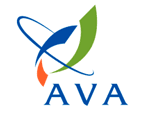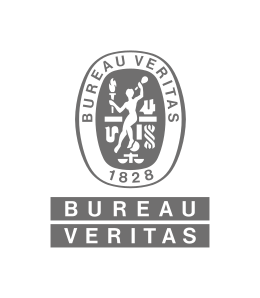Quality assurance (QA) is a way of preventing mistakes and defects in manufactured products and avoiding problems when delivering products or services to customers; which ISO 9000 defines as "part of quality management focused on providing confidence that quality requirements will be fulfilled". This defect prevention in quality assurance differs subtly from defect detection and rejection in quality control and has been referred to as a shift left since it focuses on quality earlier in the process.

Hazard analysis and critical control points, or HACCP, is a systematic preventive approach to food safety from biological, chemical, and physical hazards in production processes that can cause the finished product to be unsafe and designs measures to reduce these risks to a safe level. In this manner, HACCP attempts to avoid hazards rather than attempting to inspect finished products for the effects of those hazards. The HACCP system can be used at all stages of a food chain, from food production and preparation processes including packaging, distribution, etc. The Food and Drug Administration (FDA) and the United States Department of Agriculture (USDA) require mandatory HACCP programs for juice and meat as an effective approach to food safety and protecting public health. Meat HACCP systems are regulated by the USDA, while seafood and juice are regulated by the FDA. All other food companies in the United States that are required to register with the FDA under the Public Health Security and Bioterrorism Preparedness and Response Act of 2002, as well as firms outside the US that export food to the US, are transitioning to mandatory hazard analysis and risk-based preventive controls (HARPC) plans.
Teagasc is the semi-state authority in the Republic of Ireland responsible for research and development, training and advisory services in the agri-food sector.

The New Zealand Qualifications Authority is the New Zealand government Crown entity tasked with administering educational assessment and qualifications. It was established by the Education Act 1989.

Live export is the commercial transport of livestock across national borders. The trade involves a number of countries with the Australian live export industry being one of the largest exporters in the global trade. According to the Australian Bureau of Statistics, exports of live sheep rose 21.4% and live calves increased 9.7% between March 2017 and March 2018. During 2017 alone, Australia exported 2.85 million living animals in shipping containers and airplanes. The expansion of the trade has been supported by the introduction of purpose-built ships which carry large numbers of animals. The amount of livestock exported from the European Union grew to nearly 586m kilograms between 2014 and 2017, a 62.5% increase during the time period.
The Agricultural Marketing Service (AMS) is an agency of the United States Department of Agriculture; it maintains programs in five commodity areas: cotton and tobacco; dairy; fruit and vegetable; livestock and seed; and poultry. These programs provide testing, standardization, grading and market news services for those commodities, and oversee marketing agreements and orders, administer research and promotion programs, and purchase commodities for federal food programs. The AMS enforces certain federal laws such as the Perishable Agricultural Commodities Act and the Federal Seed Act. The AMS budget is $1.2 billion. It is headquartered in the Jamie L. Whitten Building in Washington, D.C.
Accreditation is the independent, third-party evaluation of a conformity assessment body against recognised standards, conveying formal demonstration of its impartiality and competence to carry out specific conformity assessment tasks.

Food safety is used as a scientific method/discipline describing handling, preparation, and storage of food in ways that prevent food-borne illness. The occurrence of two or more cases of a similar illness resulting from the ingestion of a common food is known as a food-borne disease outbreak. This includes a number of routines that should be followed to avoid potential health hazards. In this way, food safety often overlaps with food defense to prevent harm to consumers. The tracks within this line of thought are safety between industry and the market and then between the market and the consumer. In considering industry to market practices, food safety considerations include the origins of food including the practices relating to food labeling, food hygiene, food additives and pesticide residues, as well as policies on biotechnology and food and guidelines for the management of governmental import and export inspection and certification systems for foods. In considering market to consumer practices, the usual thought is that food ought to be safe in the market and the concern is safe delivery and preparation of the food for the consumer.

Ractopamine is an animal feed additive used to promote leanness and increase food conversion efficiency in farmed animals in many countries (180), but banned in others. Pharmacologically, it is a phenol-based TAAR1 agonist and β adrenoreceptor agonist that stimulates β1 and β2 adrenergic receptors. It is most commonly administered to animals for meat production as ractopamine hydrochloride. It is the active ingredient in products marketed in the US as Paylean for swine, Optaflexx for cattle, and Topmax for turkeys. It was developed by Elanco Animal Health, a division of Eli Lilly and Company.

The Agri-Food and Veterinary Authority of Singapore (AVA) was a statutory board under the Ministry of National Development that regulated food safety, safeguarded animal and plant health, and facilitated the agri-food and fisheries trade sectors. AVA was disbanded on 1 April 2019, with duties being transferred to other statutory boards, Singapore Food Agency, National Environment Agency, Health Sciences Authority, and National Parks Board.

Bureau Veritas is a French company specialized in testing, inspection and certification founded in 1828. It operates in a variety of sectors, including Building & Infrastructure, Agri-food & Commodities, Marine & Offshore, Industry, Certification and Consumer Products.
Farm assurance is product certification for agricultural products that emphasises the principles of quality assurance. The emphasis on quality assurance means that, in addition to product inspection, farm assurance schemes may include standards and certification for traceability, production methods, transport, and supplies.

The Institute of Environmental Science and Research is a New Zealand Crown Research Institute (CRI). Its purpose is to deliver scientific and research services to the public health, food safety, security and justice systems, and the environmental sector to improve the safety of, and contribute to the economic, environmental and social well-being of people and communities in New Zealand.

In New Zealand, agriculture is the largest sector of the tradable economy. The country exported NZ$46.4 billion worth of agricultural products in the 12 months to June 2019, 79.6% of the country's total exported goods. The agriculture, forestry and fisheries sector directly contributed $12.653 billion of the national GDP in the 12 months to September 2020, and employed 143,000 people, 5.9% of New Zealand's workforce, as of the 2018 census.

In 2004 Didymosphenia geminata, a diatom commonly known as didymo or rock snot, was discovered in New Zealand, the first time it was found in the Southern Hemisphere. To restrict its spread, the whole of the South Island of New Zealand was declared a controlled area in December 2005. All items, such as boats, fishing gear, clothing, and vehicles, that have been in a stream, river or lake, must be cleaned before they enter another waterway. Biosecurity New Zealand working with Environment Southland, AgriQuality and Fish and Game New Zealand launched an extensive public awareness campaign to encourage river users to clean their equipment after use in affected waterways. This campaign was highly successful, with 99% of freshwater users surveyed in 2008 in the South Island being aware of didymo.

NSF International is an American product testing, inspection and certification organization based in Ann Arbor, Michigan.
The National Centre for Foreign Animal Disease (NCFAD), located in the Canadian Science Centre for Human and Animal Health in Winnipeg, Manitoba, is part of the Canadian Food Inspection Agency’s National Centres for Animal Disease. NCFAD is co-located with the Public Health Agency of Canada’s National Microbiology Laboratory.
Delvotest is a broad spectrum microbial inhibition test used in dairy for testing antibiotic residue in milk and milk products. It is used to ensure milk safety and is produced by the global company DSM.

The Animal Quarantine Department (AQD) is an attached department of the Ministry of National Food Security and Research, responsible for animal quarantine, inspection and certification services in Pakistan. AQD is the lead agency for collaboration with other agencies to protect the wild animals and the livestock industry of Pakistan and other countries from introduction or spread of exotic diseases, by regulating the import, export and quarantine of animals and animal products.
The Nevada State Department of Agriculture is the department of the Nevada State government responsible for managing the welfare of Nevada citizens and regulating Nevada’s agriculture and related industries.












